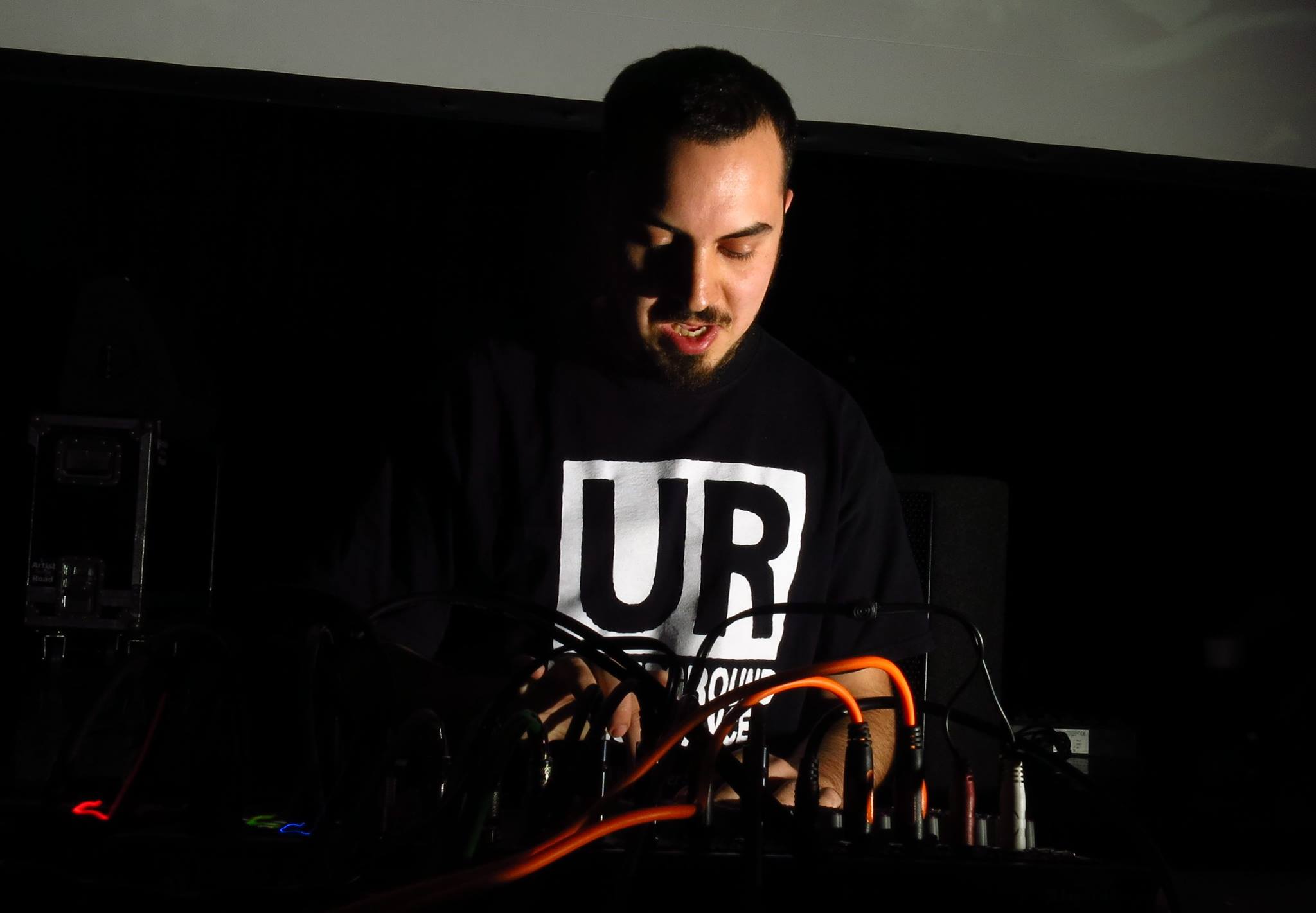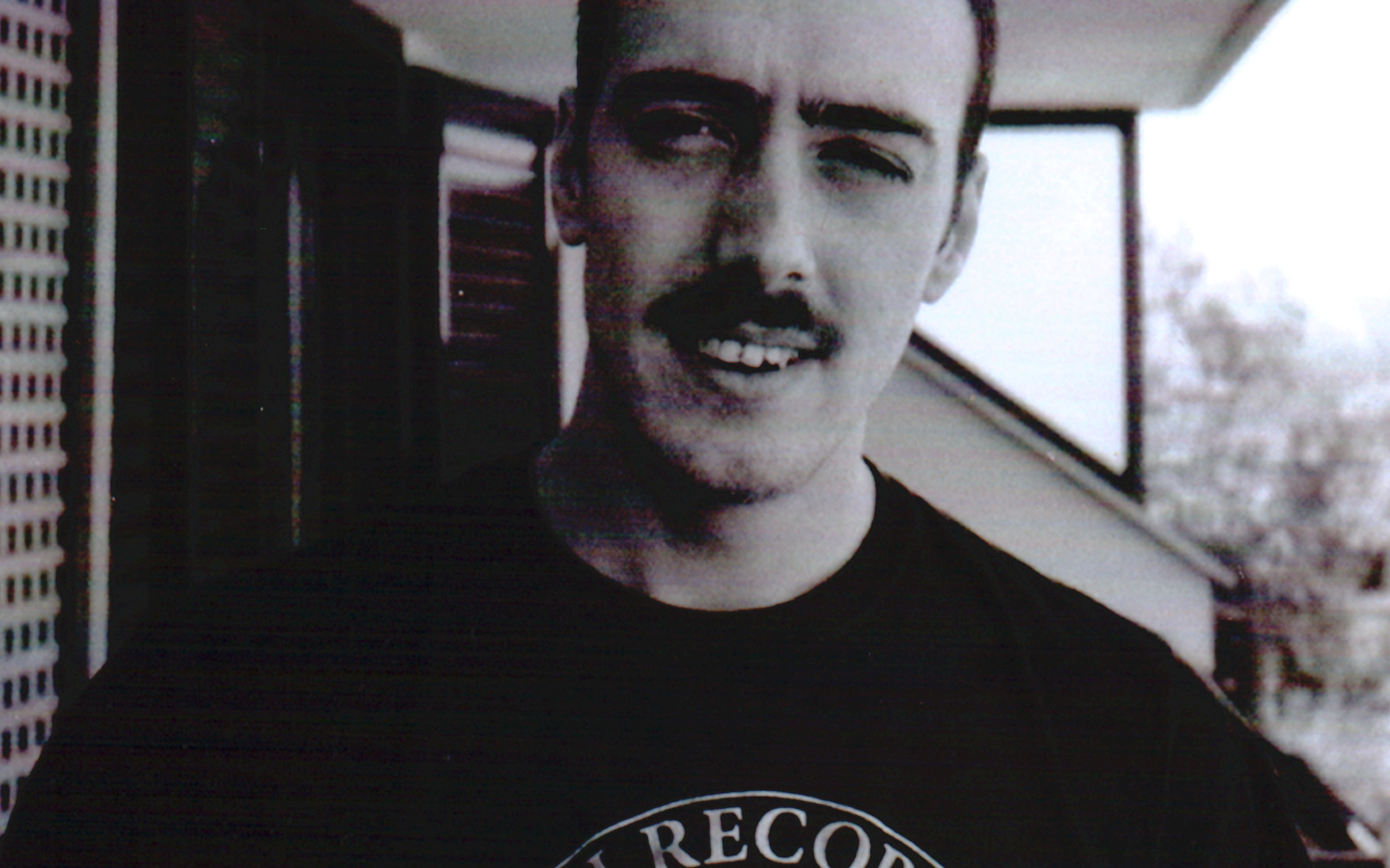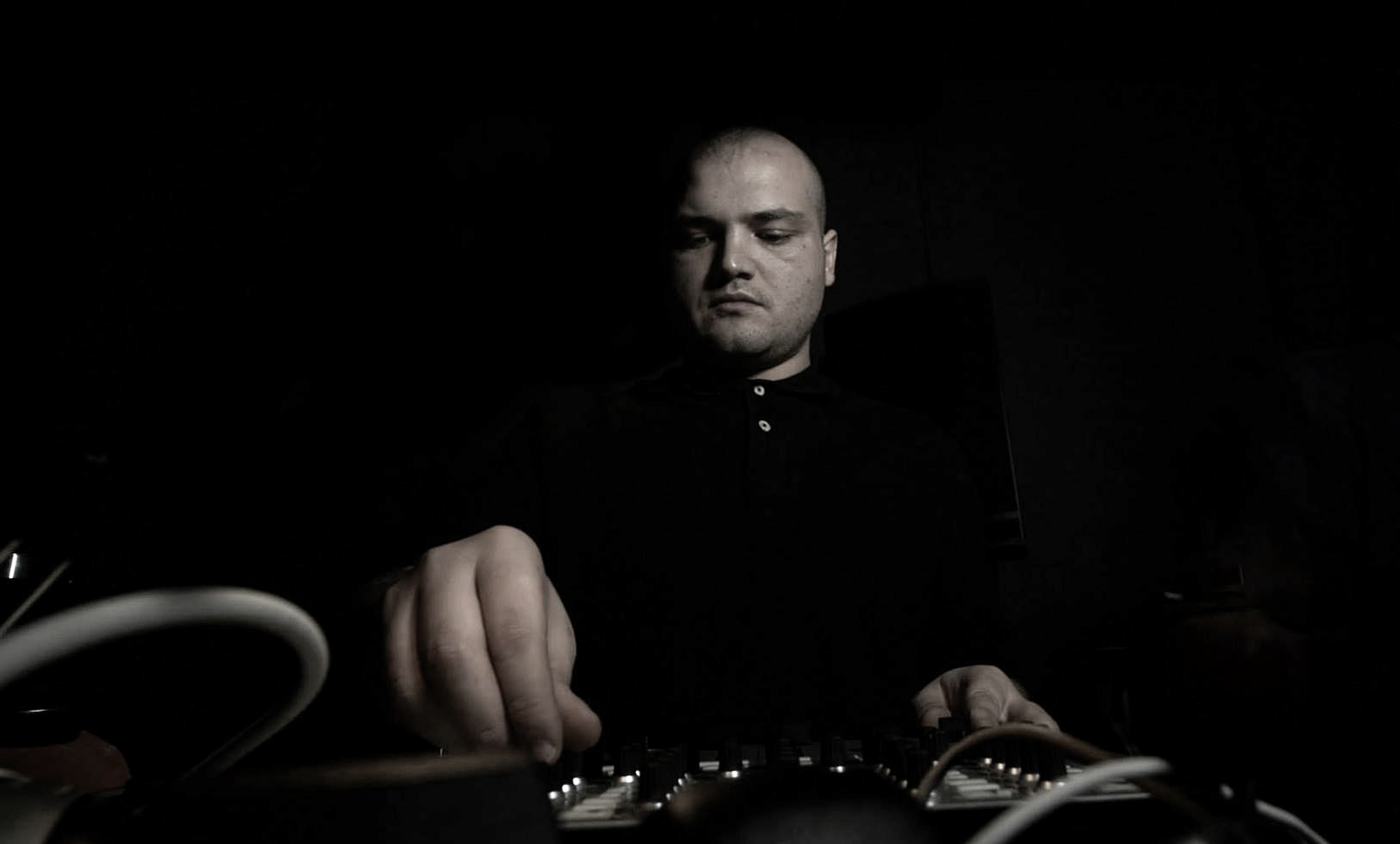Repitch, Cosmo Rhythmatic and 3TH: A New Generation of Techno in Berlin
A trio of related labels endeavor to define a sound.

Repitch, Cosmo Rhythmatic and 3TH: A New Generation of Techno in Berlin
A trio of related labels endeavor to define a sound.

Ten years ago, minimal techno sound resonated throughout Berlin; today, one of the most vibrant of the city’s techno formulations is one that’s heavily influenced by noise and dark industrial sounds, fronted not by one leading name but rather by a gradually evolving collective throughout the city. Instrumental within this collective are Shapednoise (a.k.a. Nino Pedone), Ascion [a .k.a “Pasquale Ascione”) and D. Carbone a.k.a. Honzo (a.k.a “Davide Carbone”), three Berlin-based producers who have played at events including Berlin Atonal, CTM Festival, and Contort. Together, Ascion and D. Carbone run 3TH, a small imprint that focuses on an experimental techno output, while together all three run Repitch, as well as Cosmo Rhythmatic, a small label that will soon release the collaborative album of Franck Vigroux and renowned Finnish minimalist producer, Mika Vainio. Following this announcement of that LP, XLR8R sat down with them to discuss the motivations and inspirations behind their labels. Let’s start with Repitch, the label you all started together in 2011. How did that come about? What was the the original idea? Ascion: It’s quite easy really. Davide [Carbone href=”http://www.mikavainio.com/”] and I were both producing music, both of us techno with a minimal approach. We are from the south of Italy but started living together when we moved north to study. When we were there, it became clear that we shared the same ideas both had a love for music, so we decided it was important that we had our own platform. It was actually the same time that we met Nino, we spoke with him about our idea. We began chatting online and it became clear that we had very similar tastes, so the label actually developed quite naturally.
D. Carbone: In the beginning, Pasquale and I had been producing and releasing for a while. When we met Nino, we found distribution and it all just grew from there. Day by day, we also shaped the sound of the label; I think it became a mix of all of our individual sounds.
And what about the name?
Ascion: It’s named after an old project of me and Davide which was entitled Pitcher, so Repitch sounded right because we wanted to make something new.
Nino, what were your inspirations for coming on board?
Shapednoise: When I began speaking with Davide and Pasquale, I hadn’t actually started producing music. Pasquale and Davide told me all about the project and it sounded really interesting.
And did you have a specific vision that you wanted to achieve? You mentioned earlier that you wanted a platform to release both your music and that of other artists. Is there any more to it than that?
Ascion: We didn’t really have a genre we wanted to target; it was just music that we enjoyed at the time—just uncompromising electronic music.

Shapednoise: We didn’t really have a vision at the start, but I feel that Repitch artists today have a specific kind of style that you can recognize almost immediately. We like to release the music of artists who produce slightly left-wing techno; we’re looking for techno that is a little bit more personal and complex in its style. I think that all the artists that have released on our label have done so because they have a style of techno that you can recognize easily. In short, it has become a vehicle for giving unique artist a platform to get their music out there. For me, it is too easy to produce just the regular techno or drum & bass or something, but doing something really personal and developing a unique style is just something a lot more interesting. This takes more time and this is what we want to promote and celebrate.
That raises the question of how you do your A&R—how do you try and find these artists?
Ascion: Basically, there is a range of different ways we find this music. Sometimes it is via the Internet, other times it is via a friend of a friend or something like that. I think the growth of digital communication has facilitated A&R processes for the music we’re looking for, and we use this a lot. Nowadays there are so many more ways of finding music.
Do you proactively search for artists on SoundCloud?
Ascion: Not that much. Gaja, for example, who released on Repitch, was a guy that we met here in Berlin, and we realized that he was a very good producer. We asked him to release on Repitch. It’s also important that we are friends with them; the A&R process is far more than just a professional relationship.
And do you get lots of demos?
Ascion: We do, yes. We receive quite a lot of unsolicited demos from unrecognized producers, but it’s very rare that we release this on the label.
D. Carbone: It normally happens that we ask artists to come and release on the label. We will hear them and recognize straight away that his sound is right for the label. We will then approach them to join Repitch.
Shapednoise: That said, sometimes we do release artists who approach us via a demo. For example, we found Stave, who released on Repitch, via a demo. He wrote to us asking for a feedback about his music, and that’s how he ended up on Repitch.
D. Carbone: Almost always, about 90 percent of the time, when one of us finds an artist, the other two will agree that he is right for Repitch. I can’t really remember a time that one of us found an artist and we didn’t all agree that he was right for the label. We know each other’s taste pretty well nowadays.
How did you learn to run a label?
D. Carbone: By making mistakes! It’s completely trial and error, to be honest with you. Nobody has explained this to us, and we have learned by experience. Gradually you learn which are the best distribution companies for you and how to do the business side that’s required for a label to grow.
Shapednoise: I think that once you begin running a label, you learn pretty fast. It becomes clear what’s working and what is not, and it just takes a bit of time to understand the process.
Do you keep the roster of artists intentionally quite small to ensure the quality of the output?
Shapednoise: Yes. That’s very important. We analyze the roster very carefully to ensure we can offer the artists what they want. We will evaluate how far the artist has gone, what they’ve got coming under and then make decisions on how to tweak the roster.
Talk to me briefly about the Repitch showcase parties that you’ve started. What’s the idea behind these, and what’s the criteria for a party?
D Carbone: The idea is to grow and celebrate the label. They’re always fun! We don’t have a specific club or venue because it’s not that important. As long as there is good music and a good energy, then the party will work.

Ascion: The label has grown enough now that sometimes we are getting requests from venues to hold these parties. We will then look at the venue and see if it is fit for a Repitch party. There isn’t a specific criteria but it is important that all three of us play in the event—this is the only way of establishing the sound of the night. In addition to this, we will normally have a guest from the Repitch roster to showcase what we have coming up.
Shapednoise: The promoter must understand what we are looking to achieve, and we will always speak with them to make sure they can make it work. It was amazing because last year we played a party in Milan, and it was clear that people had come to see the label and us play, not just for the venue. It was a pretty cool feeling because it wasn’t just the hype of the club that sold the tickets; most of the people had come for us and promoter did a great work too so the energy really was incredible.
All three of you also started Cosmo Rhythmatic in 2014. Do you see this as a sub-label of Repitch or as a completely different entity?
Ascion: I think it is a sister label. For us, it is on the same level as Repitch; it’s just a different label with different goals.
Shapednoise: But it is clear that the two labels are connected to each other. It’s not like Repitch is the main label and Cosmo Rhythmatic is a lesser label. Whereas Repitch focuses on left-wing techno, we founded Cosmo Rhythmatic to focus on the more abstract and noisy side.
D. Carbone: I also think that both the labels complete and compliment each other.
If Cosmo Rhythmatic was started to focus on more abstract techno, do you feel that Repitch has its own unique identity nowadays—and that you must protect it?
D. Carbone: Yes, that’s exactly it. It’s a different type of music, and if we released Cosmo Rhythmatic music on Repitch, it would damage the integrity of the brand and confuse the fans of the label. It just becomes confusing.
Shapednoise: The idea for Cosmo Rhythmatic arose because I became more and more interested in this abstract avant-garde noise, and I had just stopped my old label Violet Poison. Because of this, I needed a platform to release this noisy, abstract techno, so we just decided to go and do it.
You released the Franck Vigroux EP, Centaure, at the end of 2014, and you’ve followed this up with the new Mika Vainio collaborative album coming on Cosmo Rhythmatic. How did that come about?
Shapednoise: I was in touch with Frank for a year, and we played a couple of shows together. I was really impressed by his work, so the main idea came about because we just wanted to work together. We all decided that Franck was a perfect for the label, and the Centaure EP expressed the more electronic side of his work. He usually composes music and lots other things, so this was a something new for him too. We went to lunch and we just felt inspired. The collaborative album came about because Frank was excited about the work we did with the EP, and he had already started speaking with Mika. We all met up and then we decided to release this on our label.
What makes this label unique in such a saturated market?

D. Carbone: I think it is too early to really understand this yet, and we must wait for another two or three releases. However, I the idea at the moment is to focus on completely original collaborations between different artists. The label is growing slowly, not just because we keep the roster of artists small, also because we are thinking a lot on what we are releasing. We’re focusing very much on completely unique on individual projects and collaborations.
Shapednoise: Collaborations are certainly something we’re going to focus on. It’s like the Mika Vainio and Frank Vigroux album we have upcoming; this is one of the first ones—although there will be one before that.
Finally, lets quickly discuss 3TH. Is it just a vehicle to release your own material, Pasquale and Davide?
D. Carbone: I could release my experimental work on Repitc,h but it doesn’t make sense to jeopardize the brand of the label. It’s simply because not all the tracks we produce will fit on Repitch and Cosmo Rhythmatic. When I am producing, I am not putting all of them on Repitch or Cosmo Rhytmatic.
Ascion: If you listen to the 3TH catalog, it’s is quite eclectic. They are linked to each other but they are all different styles. It’s not like they are all the leftovers from Repitch or Cosmo Rhythmatic, it’s a completely different project that we started with Lucindo in 2013 that allows us to experiment. I also wanted to focus more on visuals, and Davide wanted another platform to explore other avenues, so it just made sense. It allows us to experiment with our techno sound. We make so much music that we needed another platform!
Shapednoise: I think also that we all specialize in our own sound. Cosmo Rhythmatic came about because I moved onto obscure avant-garde noise and Davide and Pasquale went on to different forms of techno, so that’s why 3TH started.
How do you find the time to run a label? Do you all have different tasks?
Shapednoise: We have definitely got different roles. I focus very much on the A&R for Cosmo Rhythmatic while Pasquale and Davide focus on Repitch, I feel. In the artistic side at least, we’ve all definitely split.
Ascion: I’ve always take care of the graphic side of the labels – I create all the graphics, including the websites, logos and the t-shirts and so on. Davide then focuses on the technical stuff.
D. Carbone: I don’t know how we find the time!

